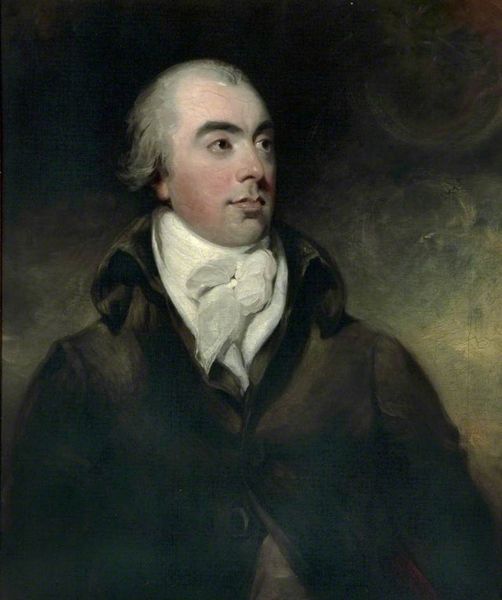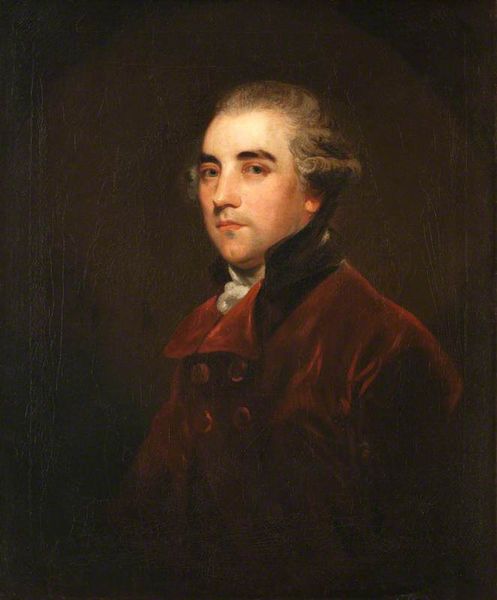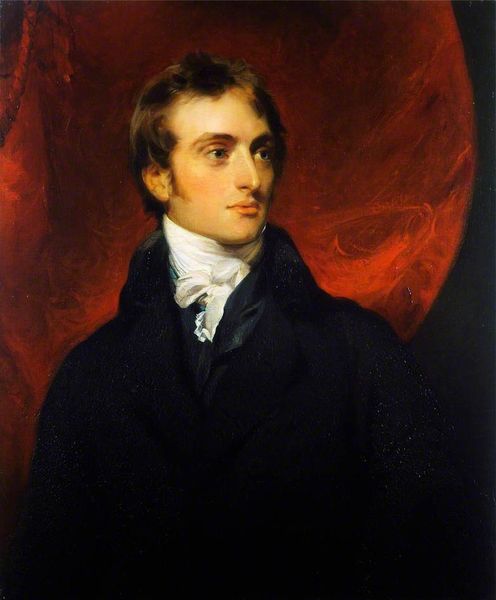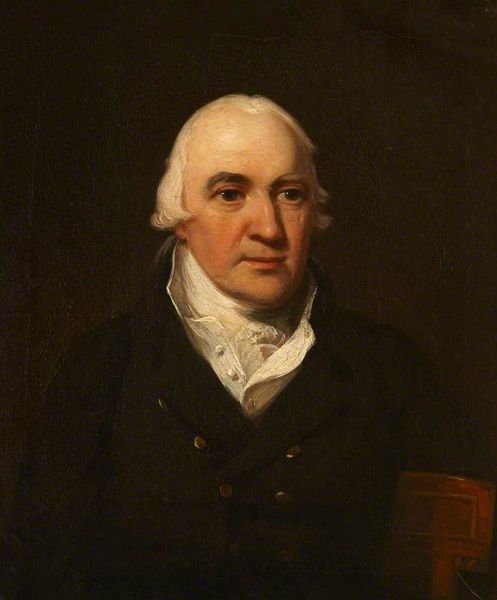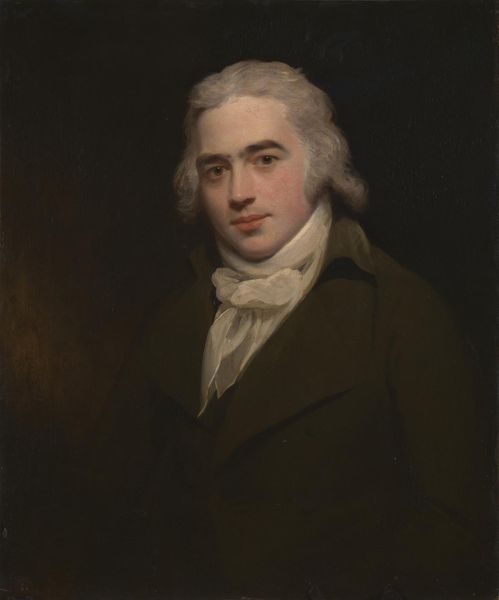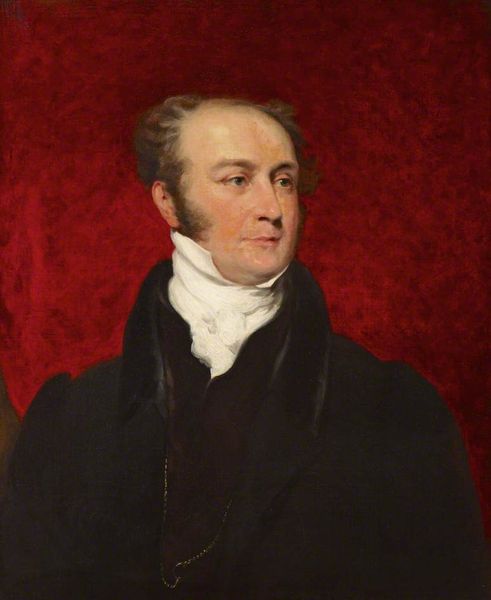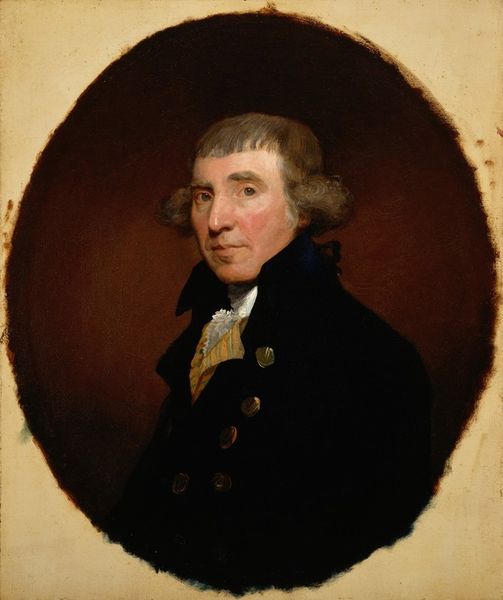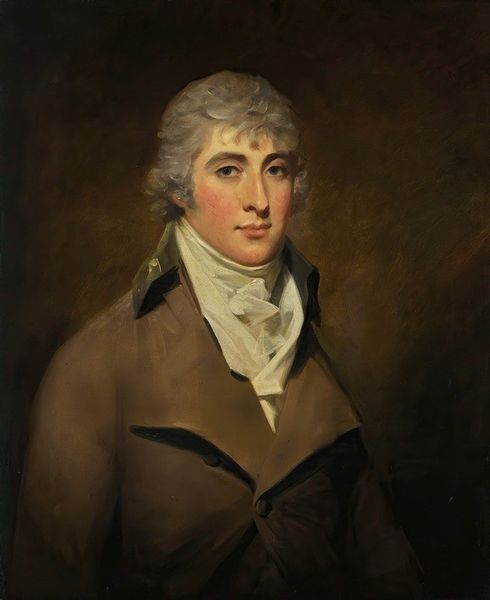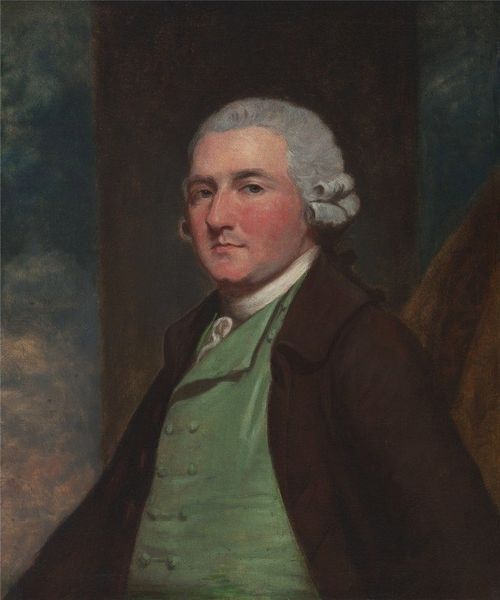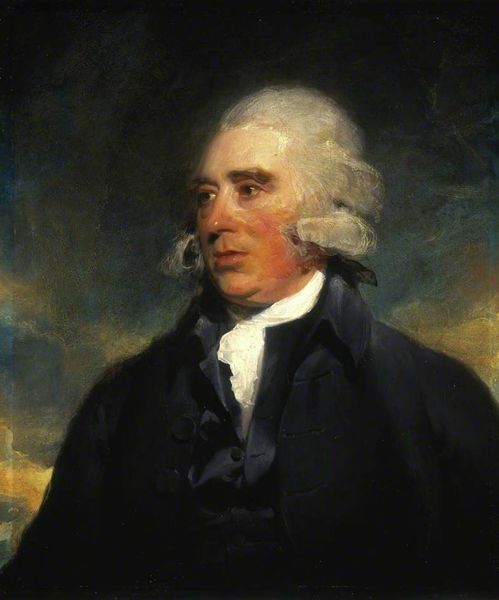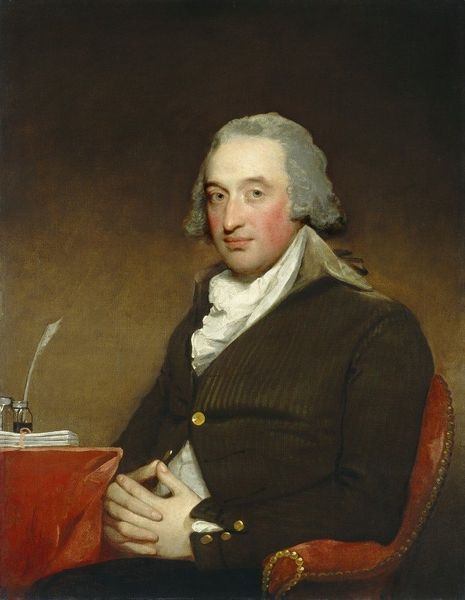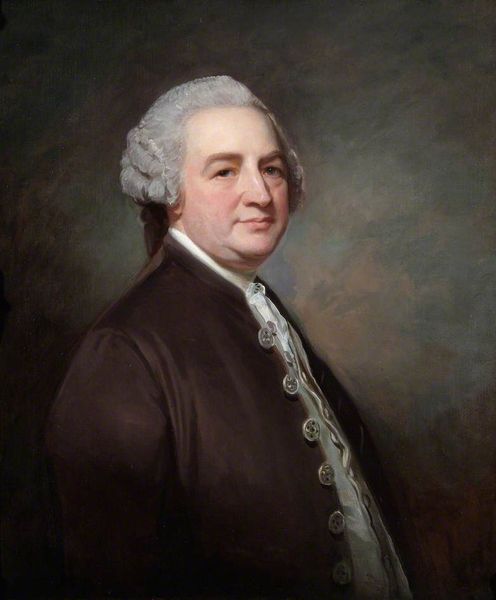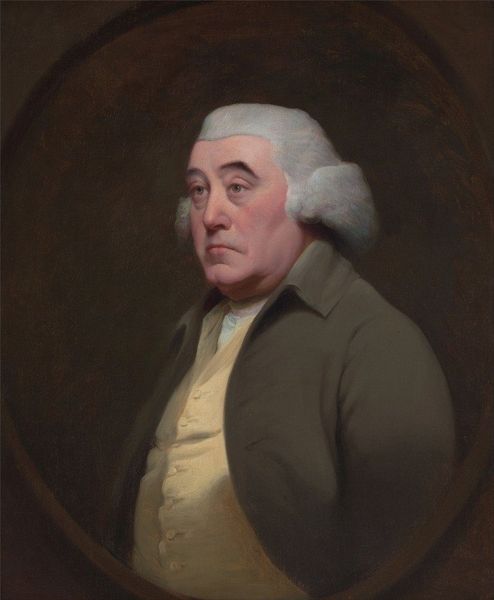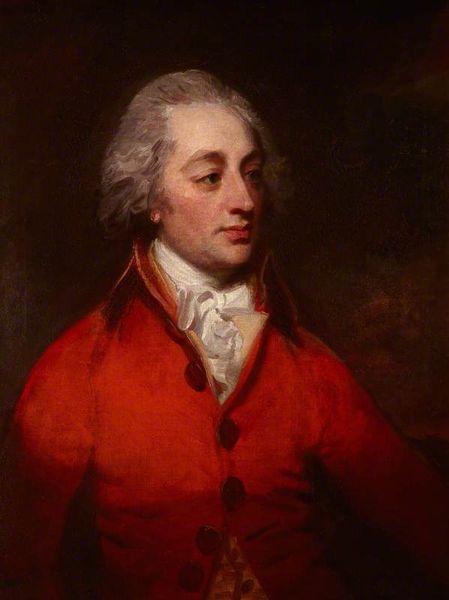
#
portrait image
#
portrait
#
portrait reference
#
portrait head and shoulder
#
portrait drawing
#
facial portrait
#
lady
#
portrait art
#
fine art portrait
#
celebrity portrait
#
digital portrait
Copyright: Public domain
Editor: We’re looking at Thomas Lawrence’s portrait of Matthew Baillie, created in 1806. It’s quite striking how the dark coat contrasts against the crimson background, giving a real sense of gravitas. What strikes you about the composition of this piece? Curator: Immediately, I'm drawn to the formal tensions inherent in the brushwork. Note how Lawrence masterfully handles light, particularly the way it illuminates Baillie’s face, creating a focal point. This is juxtaposed against the darker, less detailed areas. Editor: So, the use of light isn't just about making the subject visible; it's creating a sense of importance? Curator: Precisely. Observe the texture created by Lawrence’s impasto technique. What do you make of it? Editor: It gives the coat and the background a tactile quality, but it's the face that remains smooth and almost idealized. Is there a specific theoretical framework we could apply here? Curator: We might consider semiotics. The signs and symbols within the painting – the subject's attire, posture, even the subdued palette – communicate power, status, and intellectual rigor, no? Editor: Definitely. The muted colors, avoiding brighter, flamboyant tones… Curator: Precisely. Reflecting, I’m reminded that a painting's beauty isn’t just aesthetic. It’s intellectual, reliant on composition. Editor: I never really considered all that goes into composition! Thanks.
Comments
No comments
Be the first to comment and join the conversation on the ultimate creative platform.
